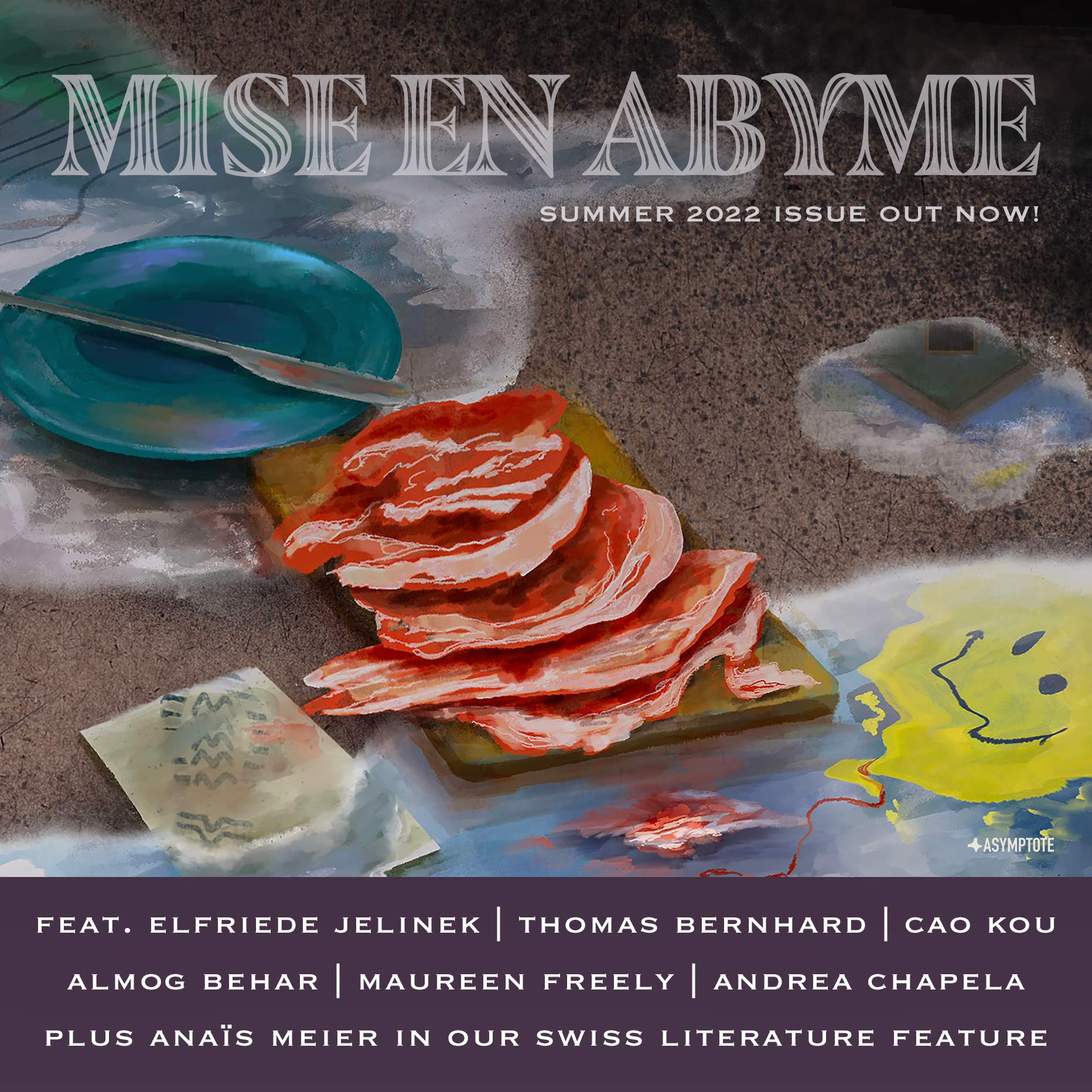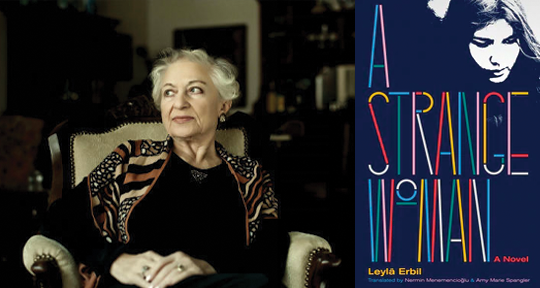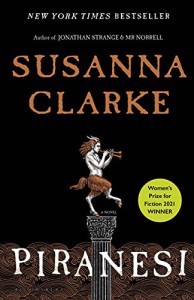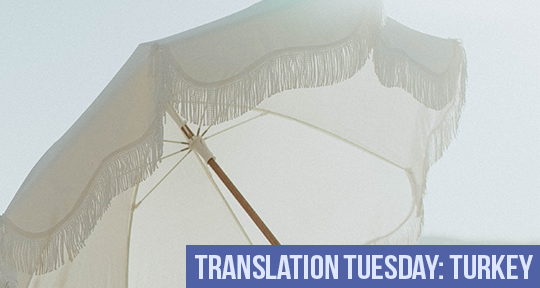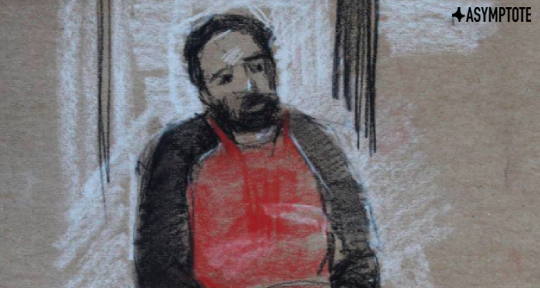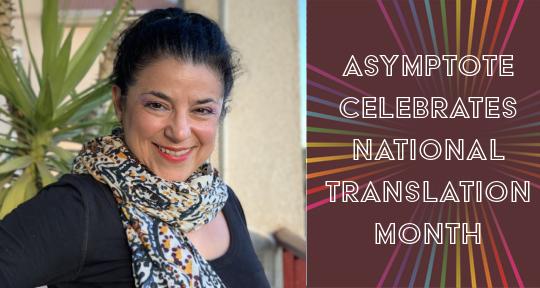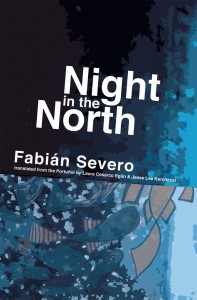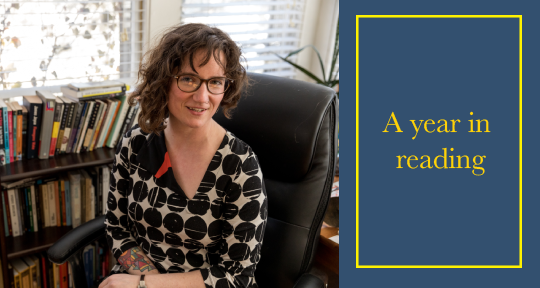The most striking piece in this issue was Abdelfattah Kilito’s “Borges and the Blind” (tr. Ghazouane Arslane) for informing me of Borges’ deep affiliation with Arabic literature (something I wasn’t aware of before)—it opened my eyes to another dimension of Borges’ works as well as highlighted the blind spot of critics and readers of translation who might not be privy to the multifaceted aspects of the text behind the text. Cao Kou’s “The Wall Builder” (tr. Chen Zeping and Karen Gernant) is a truly wonderful and chilling fable on the idea of border, i.e., a porous wall between insider and outsider, individual and the collective in a repressive society. Anna Felder’s “Unstill Life with Cat” (tr. Brian Robert Moore) is a lovely, fully immersive tale from a cat’s point-of-view. The translation is magical, wondrously immediate. I love Rose Bialer’s perceptive questions and the resulting interview with Maureen Freely for revealing how Turkey’s political situation might affect the relationship between an author and his translator, and how there are so many layers of “the other” in Turkish society.
—Thuy Dinh, Editor-at-Large for the Vietnamese Diaspora
Kelsi Vanada’s translation is itself a reflection of Andrea Chapela’s long meditation on the meaning and mechanics of mirrors, with all the inevitable subtle distortions and complex reconfigurations that Chapela elaborates on. This extended reflection employs myriad angles of vision‚ philosophy, science, toys, personal narrative, literature, and history, from which to view the significance of mirrors, the act of looking at oneself, and the act of constructing a self-image, with and without the fragmented and inevitably distorted images that mirrors provide. Juan Calzadilla’s poems from Dictated by the Pack (tr. Katherine Hedeen and Olivia Lott) are virtuosic translations—the complexity of the diction and rhythms as well as the subtlety of how the language accretes are very challenging to carry over into English without disrupting the balance between sense-making and surprises in the language. The lines shift across the page, like waves lapping onto the shore, as if the rhythms of thought have been recorded faithfully in their syncopated arrivals, gaps, and runnings-over. Almog Behar’s long poem “First We’ll Speak Many Words About God” (tr. Shoshana Olidort) is a meditation on religion and god, but also an interrogation of our conception of god, an interrogation of the faithful as well as the faithless. It’s subversive and yet hopeful. Sa’eed Tavana’ee Marvi’s ”The Open Tome” (tr. Khashayar Kess Mohammadi) is set in a post-apocalyptic, interplanetary, post-Earth world. The voice of the poem shifts‚ from an unnamed speaker, to a television set, to an ”Oceandweller,” to an unnamed speaker again. The experimental formatting of the poem allows the reader to shift between these different lens ratios. As such, the reader experiences a telescoping which perhaps informs the experience alluded to in the poem‚ by a visionary which either documents the future, or foretells the otherworldliness of the present moment. I really enjoyed Rose Bialer’s interview with Maureen Freely, which touches on the craft of translation, the challenges and the advantages of translating through the prism of race, gender, sexuality, etc., and what it’s like to navigate a translator-author relationship that spans two very different cultures, especially when the author in question is famous, and at certain points even infamous.
—M. L. Martin, Assistant Editor (Poetry)
I have a distinct affinity for Mitteleuropa miserablism, and this edition contains two quintessential instances of this literary tendency: Elfriede Jelinek (tr. Aaron Sayne) and Thomas Bernhard (tr. Charlie N. Zaharoff). It does not get much more central European than Austria, and the Austrians seem to have an affinity for misanthropy, self-loathing, destruction, perversity, and psychosis, but all expressed in the most perfect prose, poetry, painting, and music. Part of my love for these two writers in particular, however, is their pushing, bending, and breaking of the formal rules of language. Perhaps this formalism is my own perversity, since, as a copy-editor, I should be forcing such language back into its grammatical and syntactical straightjacket; but as much as I know and can enforce such rules in a professional manner, I thrive and find a thrill in breaking them. READ MORE…



